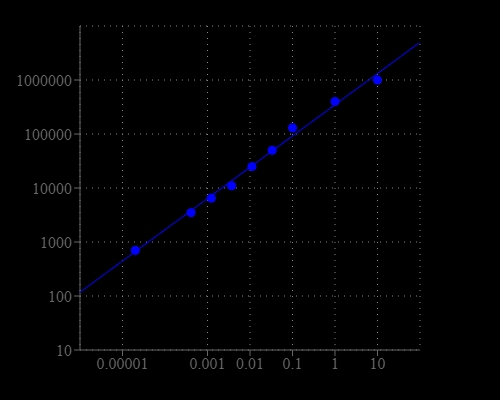Amplite® Luminometric Alkaline Phosphatase Assay Kit
Luminescence
Alkaline phosphatase is a highly sensitive enzyme for ELISA, immuno-histochemical, Northern, Southern and Western blot applications. It is widely used in various biological assays (in particular, immunoassays) and ELISA-based diagnostics. This Amplite® Alkaline Phosphatase Assay Kit uses a proprietary luminogenic phosphatase substrate, to quantify alkaline phosphatase activity in solutions as well as in cell extracts. This proprietary phosphatase substrate generates a luminescent product that produces strong luminescence upon interaction with phosphatase. The kit provides all the essential components with our optimized 'mix and read' assay protocol that is compatible with HTS liquid handling instruments. It has extremely high sensitivity, and can be used for the assays that require demanding sensitivity.


| Catalog | Size | Price | Quantity |
|---|---|---|---|
| 11956 | 100 Tests | Price |
Storage, safety and handling
| H-phrase | H303, H313, H333 |
| Hazard symbol | XN |
| Intended use | Research Use Only (RUO) |
| R-phrase | R20, R21, R22 |
| UNSPSC | 12171501 |
Instrument settings
| Luminescence microplate reader | |
| Recommended plate | Solid white |
Contact us
| Telephone | |
| Fax | |
| sales@aatbio.com | |
| International | See distributors |
| Bulk request | Inquire |
| Custom size | Inquire |
| Technical Support | Contact us |
| Request quotation | Request |
| Purchase order | Send to sales@aatbio.com |
| Shipping | Standard overnight for United States, inquire for international |
Page updated on January 21, 2026
